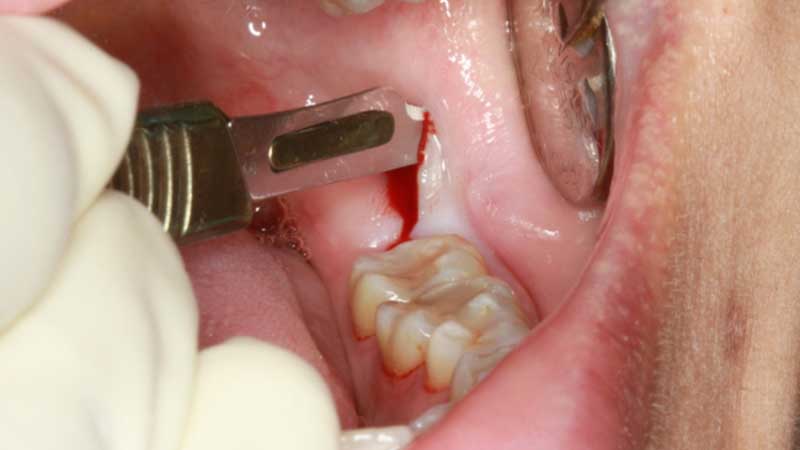We find that often many of our patients have a lot of fears and misconceptions when it comes down to wisdom teeth and wisdom tooth removal procedure. As any oral surgery, wisdom tooth removal carries some risk. Thus, wisdom teeth are usually not removed unless there is a definite need and benefits of extraction outweigh any risks. If they are not causing any problems now and no obvious problems are anticipated, your wisdom teeth can be left in place and simply regularly monitored. If you are a candidate for wisdom tooth extraction, we’ll give you an overview of what you can expect during your wisdom tooth removal procedure.
When Wisdom Tooth Extraction May Be Necessary
Convincing reasons for wisdom teeth extraction may include:
- Pain or swelling, which may occur on a recurring basis and when it is apparent that they will not fully erupt into the mouth in the future
- If wisdom tooth became decayed or is causing decay in the tooth in front of it
- If dentition in front is at increased risk of gum problems, because of the wisdom tooth
- Severe infection, abscess, or cyst around the area.
If wisdom teeth removal is indicated, it is usually better done early rather than later. This is because it is generally easier to remove an impacted wisdom tooth in younger patients, as the bone is more flexible and the area will heal up faster.


What To Expect During Wisdom Tooth Extraction
We are usually able to handle wisdom teeth extraction in house, but in some cases we may refer you out to a specialist (oral surgeon) for the extraction of wisdom teeth that appear to be deeply impacted. In most cases, the treatment involves a straightforward extraction under local anesthetic, which can take only a few minutes. However, sometimes the procedure can take over an hour under general anesthesia.
The level of difficulty of wisdom teeth removal procedure usually will depend on:
- Size and shape of the roots
- Degree of impaction, i.e. how deeply they are buried under the gum
- Angle the tooth lies at
- Your age and general health
- Ease of access to the area or how wide you can open your mouth
- How close the roots lie to the nerve canal that runs through the jawbone.
Based on the above factors doctor will advise you whether sedation is recommended. The most difficult cases may require general anesthesia. If necessary, all four wisdom teeth may be removed during the same visit or they can be extracted in pairs.
What Is Going to Happen During Wisdom Tooth Extraction
Wisdom teeth extractions vary greatly in their level of difficulty. Some can be routine and quick, while others may involve a fairly major oral surgery. Your visit to extract the impacted wisdom teeth will usually include some or all of the following procedures and treatments:
- If you require general anesthesia, it will be administered first
- The area will be injected with local anesthetic. Our doctors will ensure that the area is totally anesthetized before beginning the treatment so your experience would be completely pain-free
- If you are awake from general sedation during the procedure, you will not feel any pain. But you will be aware of a fair amount of pressure during the extraction
- The exact procedure will depend on the level of impaction, etc., but generally a small incision will be made in the gum in order to access the tooth
- Some of the surrounding bone may need to be filed away to allow access for the extraction
- The tooth may need to be divided into smaller pieces to be taken out individually
- Once the tooth and roots are removed, the gum may need to be sutured up
- The dentist will then make sure the wound stops bleeding before releasing you
- Finally, we will provide you with details on how to take care of your mouth while it is healing to ensure speedy recovery.
You do not need to be an established River Dentistry patient to get help with your wisdom teeth problems or just get evaluated. Our convenient Downtown Los Angeles dentist office is open till 7 PM on weekdays and till 4:00 PM on Saturdays. Just call our best-reviewed Downtown LA dentist office at 213-486-0006, email us at











